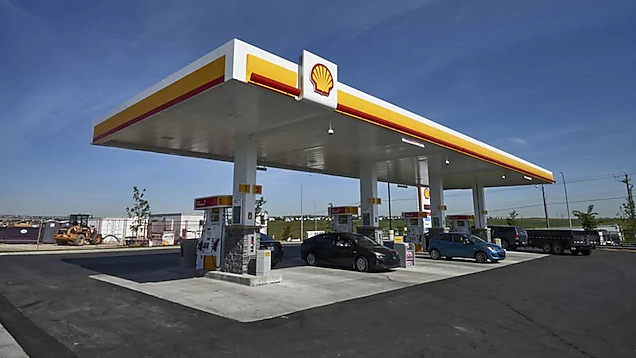Shell tries to clean up its image.
A new program from Royal Dutch Shell aims to empower Canadian consumers to clean up their own carbon mess, but it’s more likely a mea culpa for the energy giant, one that allows them to deflect ongoing climate criticism.
“Starting November 12, Shell customers can opt into the program at no extra cost when they pay for fuel purchases through Shell EasyPay™ in the Shell app during the promotional period” a statement from the company reads.
“Shell will then offset customers’ emissions by purchasing independently-verified carbon credits generated from Canadian and international projects that protect or restore natural landscapes.”
After a brief trial period, consumers enrolled in the program will be charged $0.02/l to offset their fuel usage, as well as the carbon emitted “from the extraction, refining and distribution of the fuel “. Funds raised through the process will be diverted to nature-based projects in Canada, Peru, and Indonesia.
Such a process–in which consumers can pay to balance their emissions with reinvestment into projects that remove carbon–aren’t altogether new. In 2019, Sir Elton John made headlines when he paid for carbon offsets for Prince Harry and Meghan Markle’s use of his private jet. Harry and Meghan are staunch environmentalists but their use of the jet raised eyebrows about the seriousness of their convictions.
In placing the onus of carbon offsets on the shoulders of drivers, Shell will surely hope to flip the page on criticism of their environmental actions, despite individual consumers reportedly having a minimal impact on climate change compared to large industrial players.
One report noted that major energy companies like Shell are collectively responsible for 71% of emissions. Earlier research drew similar conclusions, though UC Berkeley professor Severin Borenstein famously retorted that “[i]t’s just a copout to blame the producers of products that we have demanded, and benefitted from, for more than a century. We haven’t been misled or forced into buying those carbon-rich goods.”
Regardless of who’s to blame–large industry or consumers–Shell has faced its share of criticism in recent years. A Guardian headline called the company a “planetary death machine” while advocacy group Friends of the Environment International alleges Shell shows “contempt for people and planet“.
They’ve responded by pointing out their carbon capture/storage facility in Edmonton, Alberta has safely captured more than 5 million tonnes of CO2 over the past five years while also investing in biofuel and converting some of its fleet to electric vehicles.
Shell’s “Make the change, drive carton neutral” website, then, is meant to educate drivers about their role in carbon production, while writing its own narrative about its own place in battling climate change.
The company aims to be fully carbon neutral by 2050.
Top image: Shell
